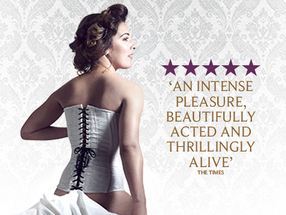 I am always curious to view anything with a 'shock factor' so when my cousin and actress Madeline Appiah described 'In The Next Room' at St.James Theatre as a bit 'full on' my ears pricked up! Immediately I grabbed my good friend Annie and waltzed down to the theatre to view it as her and I are always searching for things that push boundaries and make our jaws drop! Little did I know that the play would not only shock me, but also move me unexpectedly in a way no other play has done before. What is 'In The Next Room' about? The play is set in late 19th-century New York State during the excitement around the creation of the electric light bulb. At that same time Dr Givings has created his own electrical device which relaxes women or ‘treats them from female hysteria’ (being an overly emotional female was seen as an illness in those times). Little does Givings know that this device he has created is what is seen today as the vibrator! Meanwhile Dr Givings’s rather frustrated wife, Catherine (played by ex-‘Hollyoaks’ star Natalie Casey), is longing for attention from her husband, who is very innocently engrossed in his work. How is this all Explored? Although the play is all about sex and intimacy, it does not contain an ounce of sleaziness. Dr Givings himself is unaware that the device he has created has a sexual purpose and the characters who receive the treatment just see it as a cure and a form of relaxation. The repeated orgasm scenes that occur aren’t too uncomfortable to watch as the characters aren’t even aware that what they are experiencing is an orgasm. It also opens up the opportunity for great comedy. The treatment makes one married lady realise she is only into women while a male customer uses a device for the ‘rare’ form of ‘male hysteria’ - but I won’t tell you where they stick the device to cure his hysteria! 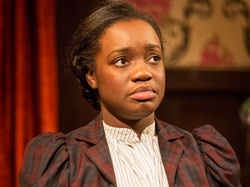 Madeline Appiah as Elizabeth Madeline Appiah as Elizabeth Alongside laughter there are also scenes of sadness and heartache. Madeline plays Elizabeth, a lady who has just lost her baby but is paid for her milk to be used for the Givings’s new-born child. (Mrs Givings has trouble producing milk for her baby, adding to her loneliness and frustration.) The first time she is handed the baby to feed, Elizabeth gets very tearful. The silence as she feeds and weeps is very powerful. I felt the audience sigh and feel pain for the character. What bizarrely and unexpectedly touched me was the ending, which was also the most outrageous part of the play. I would love to tell you what happens but I do not want to give it away to those who have yet to watch it. I must say both Annie and I were very shocked, but finally satisfied that they had decided to take the play this far. As the curtains closed I was still gobsmacked and laughing about what I had just seen, but I also got teary eyed as Mrs Givings finally reached the happiness she has longed for throughout the play. Usually I am not one for soppy love stories and I did not realise that I had become emotionally attached to Mrs Givings until this unsentimental and crazy scene somehow managed to tug at my heart strings. Outstanding acting from Natalie Casey - in fact, I could not fault any of the actors in this play and I would strongly recommend everybody go see it. I would love to hear the thoughts of those of you who have on my FB page. Book tickets HERE 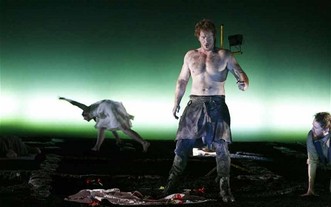 Duncan Rock who plays Tarquinius Duncan Rock who plays Tarquinius The Glyndebourne Festival is often thought of as the tip-top of everything that’s chic and exclusive about opera. With its country-estate setting, black-tie dress code, and picnics on the lawn, the summer Festival is a sumptuous experience even without the music. It can also be a little daunting, especially as the best seats are pricey. However, I saw Mozart’s ‘Marriage of Figaro’ there this summer and thoroughly enjoyed it. I was therefore delighted to be invited back to Sussex to review Benjamin Britten’s ‘The Rape of Lucretia’, one of the winter productions that is seen first in the famous opera house before going on tour. Not performed there since its debut in 1946, it was presented as part of a regular initiative to bring in a younger audience. And bear in mind that these ‘Glyndebourne on Tour’ productions have less formality and lower prices than the summer Festival, while maintaining high musical and theatrical standards. Under 30's at Glyndebourne Glyndebourne's under 30's scheme offers discount to those aged 16-29 to encourage the next generation of opera spectators and stop the perception of opera being only for older people. This includes:
Why go to an opera? A lot of my friends have said they would love go to an opera but they ‘probably wouldn’t understand what they are saying’. They need not fear, however, as there are ‘supertitles’ above the stage which act like subtitles in a movie. These are used even for productions sung in English, so you don’t miss a thing. There is a nice buzzing bar and a great atmosphere before and after the show too. The only disappointment I felt for the young’ns in this case was the very short interval which flew by. Some people moaned that they weren’t able to finish their drinks in time (of course, you were not allowed to bring the drinks into the theatre - rattling glasses and slurping lips might go unnoticed at a rock gig, but would be ruinous in an opera house!) Other than that, I heard no complaints from the newcomers. However, I saw a few older people tutting at some of the fidgety youngsters during the performance. I suppose it’s a price that might be worth paying if opera is to find a new generation to support it. ‘The Rape of Lucretia’ is about a group of men at an army camp outside Rome who all discover their wives have cheated on them while they were away. All except for Collatinus, whose wife Lucretia has remained faithful. One of the jealous men goads the single Tarquinius into going back to prove that Collatinus’ wife can be unfaithful too, insisting all women are whores (now that he has been cheated on of course!). When Tarquinius arrives, Lucretia is not interested in sleeping with him, so he forces himself on her. Lucretia tells Collatinus what happened. He insists it will not change their marriage, but Lucretia knows differently and the guilt and shame leads to a tragic ending for her.
A male and a female singer act as ‘chorus’ to commentate on the action from outside. Director Fiona Shaw decided to cast them as contemporary people. ‘A chorus represents us, the audience,’ she says. ‘They speak on our behalf. Very often a piece of theatre is a moral gauntlet, with the chorus saying to us “Step up here with us; what do you think of this story?”’ The opera examines how society judges people who do right, always waiting for them to slip up. The message came across and got everybody thinking and discussing this theme after the show. Britten wrote this opera just after the Second World War and Shaw feels “when Britten composed Lucretia, he himself had been feeling at odds with society, as a homosexual and as a pacifist.” I really felt the chorus not only helped explain the story, but also reinforced its impact. Both were very emotionally involved in the action although commentating from outside of it. In the rape scene, the chorus stripped their own clothes off, which added to it disturbing power. I felt very moved by the imagery particularly at the end as a spotlight lands on a spectacular image representing Jesus on the cross. Every actor’s performance and voice blew away both me and my guest. We both agreed we were particular fans of Duncan Rock (Tarquinius), who I had previously seen perform in a gay version of Mozart’s ‘Don Giovanni’ at Heaven nightclub in London! Want to know more about the opera tours? Find out about Glyndebourne and getting your opera tickets here Find out more about Shaw's take on directing the opera here What are your thoughts on opera? Let me know on FB or twitter Written by Sazrah @sazrah_producer www.facebook.com/sazrahproducer <-subscribe to my blogs here The Rape of Lucretia is at PLYMOUTH, THEATRE ROYAL (01752 267 222) 6 December Glyndebourne on Tour’s production of Donizetti’s L’Elisir d’Amore is at Plymouth 7 December and at STOKE-ON-TRENT, REGENT THEATRE (0844 871 7649) 11 and 14 December |
Author: SazrahSazrah is a UK music producer who has composed music for BBC 1xtra, Film, Catwalk and famous artists. Her blogs are about upcoming artists, music industry tips and general chit chat! Categories
All
Archives
September 2023
|
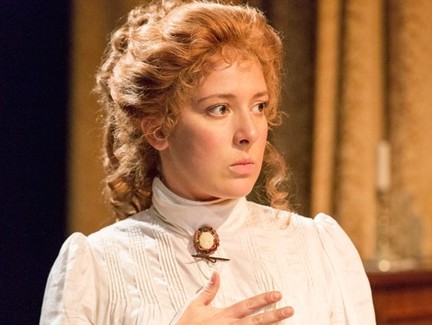
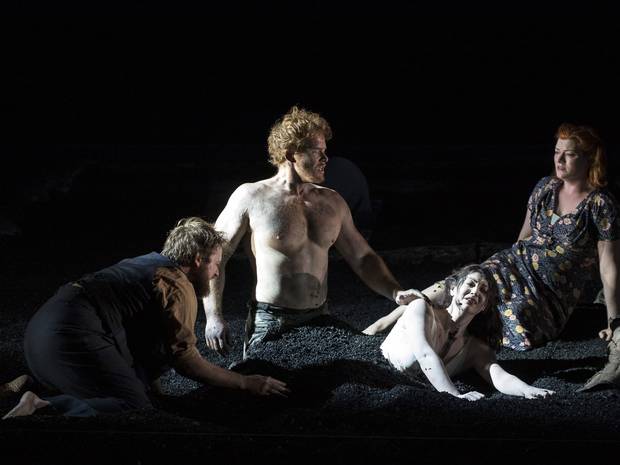
 RSS Feed
RSS Feed
